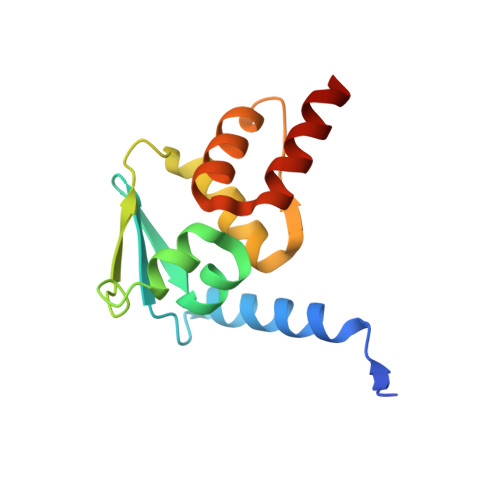A small-molecule inhibitor of BCL6 kills DLBCL cells in vitro and in vivo.
Cerchietti, L.C., Ghetu, A.F., Zhu, X., Da Silva, G.F., Zhong, S., Matthews, M., Bunting, K.L., Polo, J.M., Fares, C., Arrowsmith, C.H., Yang, S.N., Garcia, M., Coop, A., Mackerell, A.D., Prive, G.G., Melnick, A.(2010) Cancer Cell 17: 400-411
- PubMed: 20385364
- DOI: https://doi.org/10.1016/j.ccr.2009.12.050
- Primary Citation of Related Structures:
3LBZ - PubMed Abstract:
The BCL6 transcriptional repressor is the most frequently involved oncogene in diffuse large B cell lymphoma (DLBCL). We combined computer-aided drug design with functional assays to identify low-molecular-weight compounds that bind to the corepressor binding groove of the BCL6 BTB domain. One such compound disrupted BCL6/corepressor complexes in vitro and in vivo, and was observed by X-ray crystallography and NMR to bind the critical site within the BTB groove. This compound could induce expression of BCL6 target genes and kill BCL6-positive DLBCL cell lines. In xenotransplantation experiments, the compound was nontoxic and potently suppressed DLBCL tumors in vivo. The compound also killed primary DLBCLs from human patients.
Organizational Affiliation:
Division of Hematology and Medical Oncology, Department of Medicine, Weill Cornell Medical College, Cornell University, New York, NY 10065, USA.
















